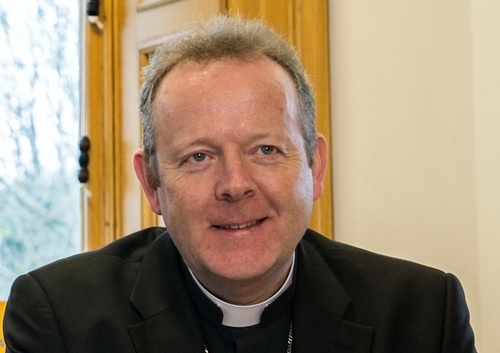On Thursday 17 February last, Archbishop Eamon Martin participated in the Oxford Union debate on the motion, “This House Would Move Beyond Organised Religion”. In opposition to the motion, Archbishop Martin argued that organised religion is essential to the purpose of religion itself, and highlighted some of shortcomings of contemporary notions of individualised spirituality.
At the outset of his address, the Primate of All-Ireland stated that non-organised religion, or private spirituality devoid of all connection to communal prayer, tradition or doctrine, is “primarily a religion of sentiment”.
He elaborated, “Such sentiments may be deep and meaningful, but ultimately it boils down to a vague sense of being ‘spiritual’. Such subjective religion places the human individual at the heart of things – anything goes, or, as they say in Ireland, ‘whatever you’re having yourself’!”
The Archbishop of Armagh emphasised the role of organised religion in upholding fundamental values and non-negotiable ethical principles, in order to combat moral relativism. He stated, “In fulfilling this role, for example, the Catholic Church is excoriated in certain quarters when she speaks in favour of the sanctity of human life or the nature of marriage, but she might equally encounter opposition when stressing the preferential option for the poor or the need for responsible stewardship of creation…In this regard organised religion is well able to stand on its feet and offer a challenging, hopefully prophetic, voice and an important balance to the uncritical acceptance of facile ‘groupthink’.”
He said that one of the central aspects of organised religion is to provide a space for individual acts of charity to become a collective response to need and to assert the voice of ‘the other’. Archbishop Martin drew attention to this, and noted, “The Church’s historic commitment to founding and operating social services such as schools, hospitals, and universities speaks to this communal spirit of charity, mission and often heroic outreach at the service of humanity – especially towards the poor and vulnerable, and those who cannot defend themselves.”
Towards the end of his address, Archbishop Martin spoke of his own personal convictions that “each of us is loved by God Who took flesh for our sake and Who wishes to share His life with us while we journey together on earth.” In this regard he stated that for him and millions of others, “the Church is the vessel that gathers God’s people together and communicates God’s closeness to us.
“To ‘move beyond’ organised religion, therefore, would be to invert the whole idea of religion – instead of faith as the reception by humanity of what God has revealed, we end up with the notion of a religion centred on humanity which re-imagines God in humanity’s own image.”
In conclusion, the senior Prelate addressed the reality that the moral weight of Christian ideal, and the failure of some in the Church to live up to it, is often cited as a cause of people turning away from organised religion. He said, “Chesterton once quipped that ‘The Christian ideal has not been tried and found wanting. It has been found difficult; and left untried’.
“For those who are disaffected, religious community can regain its attractiveness when its leaders and members are true to their calling and coherent in their witness. This challenge continually lies before me and all in the Catholic Church, and indeed all organised religion but it is no reason to seek its demise,” Archbishop Martin argued.
The motion, “This House Would Move Beyond Organised Religion”, was defeated by Archbishop Martin’s team which included Imam Monawar, Rabbi Jonathan Romain, Professor Sondra Hausner and Jenny Grehan-Bradley.
ENDS


